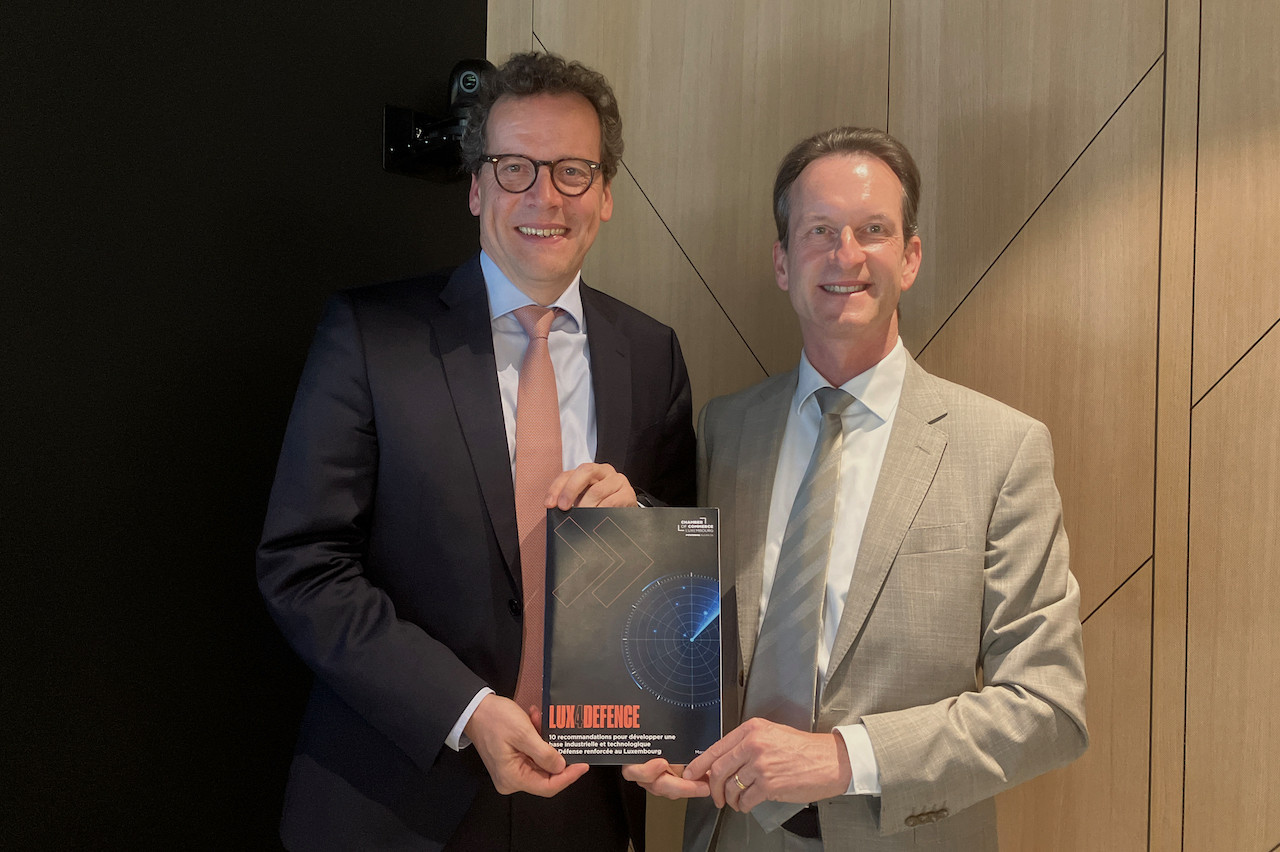After Russia’s full-scale invasion of Ukraine and even more so with the arrival of Donald Trump’s second term as president of the United States, the defence and security agenda is gathering pace. All the major decisions that will structure the European defence industry will have to be taken within the next 12 months, say , director-general of the Chamber of Commerce and , member of the Chamber of Commerce, chairman of the defence working group and senior vice president in charge of SES’ space and defence activities. These are national and European projects in which the grand duchy has neither the experience nor the reputation of the major countries in the sector.
Set up in September 2024 and chaired by Glaesener, the defence working group makes a blunt observation: “Luxembourg is leaving with a deficit of industrial and commercial experience in the defence field.” It was to consolidate the country’s strengths--particularly in the fields of space, cybersecurity, advanced materials and equipment for soldiers--that the working group drew up the Lux4Defence report. The report contains 10 recommendations for developing a stronger industrial and technological base in the grand duchy. The report was presented at the end of march to prime minister (CSV) and the economy and defence ministers concerned. “A welcome report,” says Glaesener.
Target: 2,000 new jobs
Luxembourg defence professionals--110 companies listed by the Chamber of Commerce--want to take advantage of the opportunities arising from . Their aim is to stimulate innovation and, above all, generate an economic return of up to 60% of the sums invested in the defence effort and create 2,000 new jobs.
According to Thelen and Glaesener, this is an ambitious and achievable goal. In their view, the ecosystem as it exists today can, if it concentrates on the niches in which it excels--space, cybersecurity, materials and certain equipment--respond to national and international calls for tender. “Luxembourg has a number of major players with a strong presence in key areas of interest to both the military and civilians, who will have no problem in rapidly providing solutions for certain major projects to governments or Nato. And around these major players we have a multitude of small companies working with the major players to develop innovative solutions.”
What’s missing? Coordination structures within government that facilitate the implementation of the objectives of the government and the members of the Chamber of Commerce, they say.
Ten burning recommendations
Here are the ten recommendations of the working group:
- Developing the defence industrial and technological base around specialisations. Glaesener highlights equipment for soldiers, composite materials, logistics, pilot training air ambulances, maintenance, earth observation, the signals intelligence (Sigint) constellation, telecommunications, digital twins and the sovereign cloud.
- The creation of a National Defence Task Force whose mission will be to coordinate policies and maximise the economic return for the country. Parallel to this recommendation is the creation by industrialists of the Association nationale des entreprises de la défense (ANED), a trade association that aims to map, structure and represent the sector and liaise with the government. The ANED currently has 110 members.
- The creation of a Defence Hub, a secure physical site that would host the ecosystem and where early experiments could be conducted in conjunction with the military.
- Improving the transition from R&D to industrial development. The working group advocates the creation of a special fund and mechanisms for commercial pre-orders from the public sector.
- The creation of a national testing and validation infrastructure for real-life testing. This will be achieved using the sandbox mechanism.
- The creation of a marketplace listing products and services.
- The development of an offset policy that involves understanding how to ensure a fair, local industrial return when purchasing equipment or services abroad.
- Strengthening collaboration between the army and industry.
- Actively integrating Luxembourg into the European defence dynamic by mobilising diplomats and military personnel participating in decision-making bodies.
- Lifting the legal restrictions on the development of a defence industry.
A “secure hub” approach
The promoters of the Lux4Defence report insist on the need to move quickly to influence the choices being made. And if there is one measure that can be taken quickly, it is the reform of the 2022 weapons law. Glaesener considers this law to be too vague when it comes to restrictions linked to arms production for any foreign manufacturer to take the risk of setting up in the grand duchy.
Another project that could see the light of day quickly is the creation of a secure defence hub. The government could make a secure site available in the next few months, says Glaesener.
This article was originally published in .
